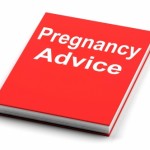Pregnancy Myths Debunked
 As soon as you announce you’re pregnant, you’ll start hearing all the old wives’ tales—some that are funny and some that are downright strange. But there are other, more modern pregnancy myths that you might find frightening or confusing, so we’re here to help!
As soon as you announce you’re pregnant, you’ll start hearing all the old wives’ tales—some that are funny and some that are downright strange. But there are other, more modern pregnancy myths that you might find frightening or confusing, so we’re here to help!
Is it Safe to Exercise When You’re Pregnant?
Unless you are a high-risk patient or have been told specifically by your doctor not to exercise, participating in fitness activities during pregnancy can have a positive impact on you and your baby. Here are two myths it’s safe to ignore:
- Myth #1: Never get your heart rate over 130 while exercising during pregnancy. There is no one “target” heart rate that’s right for every pregnant woman. Talk to your doctor about how to calculate your RPE, or rate of perceived exertion.
- Myth #2: It’s not safe to do abdominal work during pregnancy. Actually, strengthening your abdominals, your core and your pelvic floor throughout will help not only during pregnancy, but also during labor, delivery and recovery. It can also help with posture problems, which will be a benefit after your baby is born. But because you should avoid any exercises that involve lying on your back after the first trimester, try gentle standing pelvic tilts, seated belly breathing, or tightening abs, holding, then releasing.
What Foods Shouldn’t You Eat?
Most of the no-nos just involve common sense: don’t eat raw foods or drink raw milk. According to our doctors, here are the foods you should avoid or take extra precautions with when expecting:
- Raw or rare meat
- Deli meat (unless you heat the meat until it is steaming)
- Fish that contain high levels of mercury, including shark, swordfish, king mackerel and tilefish. Canned, chunk light tuna can be eaten in moderation.
- Raw Sushi: You can eat sushi if it’s cooked.
- Raw Shellfish
- Imported Soft Cheeses including Brie, Camembert, feta, gorgonzola and queso fresco, unless they clearly state that they are made from pasteurized milk.
- Caffeine: Caffeine intake in moderation is okay. Avoid it during the first trimester, then limit yourself to fewer than 200 mg per day during the pregnancy.
Can I Travel By Plane When Pregnant?
Airline travel is considered safe for pregnant women, but most airlines will require you to have permission from your health care provider if traveling during your ninth month. You should also carry contact information for your doctor. Three other tips:
- Stay hydrated, and get up and walk around about once every hour. It’s important to keep your circulation going.
- Choose an aisle seat, which will allow you to get up and out more easily or stretch your legs and back.
- Travel on major airlines with pressurized cabins and avoid smaller private planes. If you can’t avoid smaller planes, avoid altitudes above 7,000 feet.
At Chouchani, Sayegh and Bagnarello, our goal is to help you have a safe and healthy pregnancy. Please contact us if you have any questions about your own situation!
Photo courtesy of freedigitalphotos.net
